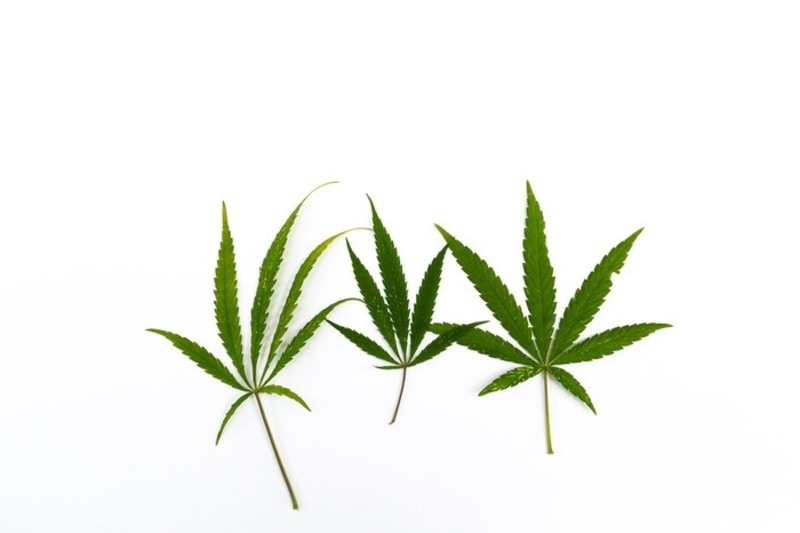Research by the Journal of the American Medical Association has identified a link between marijuana use in people with male reproductive organs and an increased risk of testicular cancer. (Of course, some cancer patients use marijuana as a natural cancer treatment so, on its surface, this seems counterintuitive – and concerning.)
Now, fellas, before you ball up and cry, there’s more to the story – and a lot more still to be studied. (Spoiler alert: Smoking a joint should not be confused with cannabidiol (CBD) oil, which may help with some cancer side effects.)
A systematic literature review and meta-analysis was performed using studies found in five online databases – PubMed, Embase, PsycINFO, MEDLINE, and the Cochrane Library. The references of the studies also were included. The studies were published from Jan. 1, 1973, to June 11, 2018. (Why 1973? That’s the year Oregon decriminalized possession of marijuana.)
The search strategy contained two concepts linked together: marijuana OR marihuana OR tetrahydrocannabinol OR cannabinoid OR cannabis; AND cancer OR malignancy OR carcinoma OR tumor OR neoplasm. (1)
Here’s what the data revealed:
This systematic review and meta-analysis identified 25 English-language studies assessing marijuana use and the risk for developing lung, head and neck, urogenital, and other cancers. In meta-analyses, regular marijuana use was associated with the development of testicular germ cell tumors, although the strength of evidence was low. JAMA did not find any connections to any other cancers.
According to the 2019 World Drug Report, almost 200 million people smoke pot worldwide. These numbers are likely due, in part, to the common perception that its use confers minimal health risks. (2, 3)
A November 2017 study of 49,343 Swedish males born between 1949 and 1951 “provides additional evidence to the limited prior literature suggesting cannabis use may contribute to the development of testicular cancer.” Also, changes to the cannabis drug policy should consider the potential role of cannabis use in the development of testicular cancer. (4)
But what does this study have to do with CBD oil? After all, CBD oil does have some research in the cancer realm. If anything, these results generate a clickbait headline, which is much ado about nothing, as the research papers clearly state. The salacious headlines also blur the line between marijuana and CBD, which are often discussed in interchangeable ways. (They are not.)
Studies have shown CBD may be helpful for anorexia, anxiety, depression, insomnia, nausea, neuropathy (numbness, pain, and weakness from nerve damage), and vomiting. Synthetic cannabinoids have been OK’d for use with chemotherapy-induced nausea and vomiting. However, no CBD product has been approved by the U.S. Food and Drug Administration for the treatment of cancer.
Cannabidiol (CBD) and tetrahydrocannabinol (THC) are cannabinoids. Each of these interacts with different receptors in your brain. CBD is unlikely to get you “high,” while THC is the “high” most associated with marijuana.
One study in mice and rats suggested that cannabinoids may have a protective effect against the development of certain types of tumors. During this 2-year study, groups of mice and rats were force-fed various doses of THC. A dose-related decrease in the incidence of benign liver tumors and liver cancer was observed in the mice. Decreased rates of benign tumors in other organs (mammary gland, uterus, pituitary, testis, and pancreas) were also noted in the rats. In another study, delta-9-THC, delta-8-THC, and cannabinol were found to inhibit the growth of Lewis lung adenocarcinoma cells in vitro and in vivo. Also, other tumors are sensitive to cannabinoid-induced growth inhibition. (5)
“One of the most painful things that I have to deal with are people who have a potentially curable malignancy who choose to treat it with cannabis oils,” said Dr. Donald Abrams, an integrative oncologist at the University of California-San Francisco. “And by the time they come to see me, they are incurable, with metastatic disease. … I’ve been an oncologist in San Francisco for 37 years. If cannabis cured cancer, I would have seen a lot more survivors.” (6)
Bottom line: Analysis of data showed regular marijuana use was associated with the development of testicular germ cell tumors, but no evidence was found as to “why.” Was another factor(s) involved that was not part of the research? And again, it was names and numbers on paper – not real-time, hands-on research.
What we do know is that studies are ongoing for CBD and THC that may prove fruitful. Regardless, you should discuss with a doctor your use or desire to use CBD oil or marijuana medically in treating your health.
Citations
(1) Association Between Marijuana Use and Risk of Cancer. https://jamanetwork.com/journals/jamanetworkopen/fullarticle/2755855
(2) 2019 World Drug Report. https://wdr.unodc.org/wdr2019/
(3) Perceived Harm, Addictiveness, and Social Acceptability of Tobacco Products and Marijuana Among Young Adults: Marijuana, Hookah, and Electronic Cigarettes Win. https://www.tandfonline.com/doi/abs/10.3109/10826084.2014.958857
(4) Cannabis Use and Incidence of Testicular Cancer: A 42-Year Follow-up of Swedish Men between 1970 and 2011. https://cebp.aacrjournals.org/content/26/11/1644#ref-1
(5) NTP Toxicology and Carcinogenesis Studies of 1-Trans-Delta(9)-Tetrahydrocannabinol (CAS No. 1972-08-3) in F344 Rats and B6C3F1 Mice (Gavage Studies). https://www.ncbi.nlm.nih.gov/pubmed/12594529?dopt=Abstract
(6) Veteran Researchers Ask ‘Can Cannabis Cure Cancer?’ https://www.forbes.com/sites/abbierosner/2020/01/21/veteran-researchers-ask-can-cannabis-cure-cancer/#42dd0e5463d4

